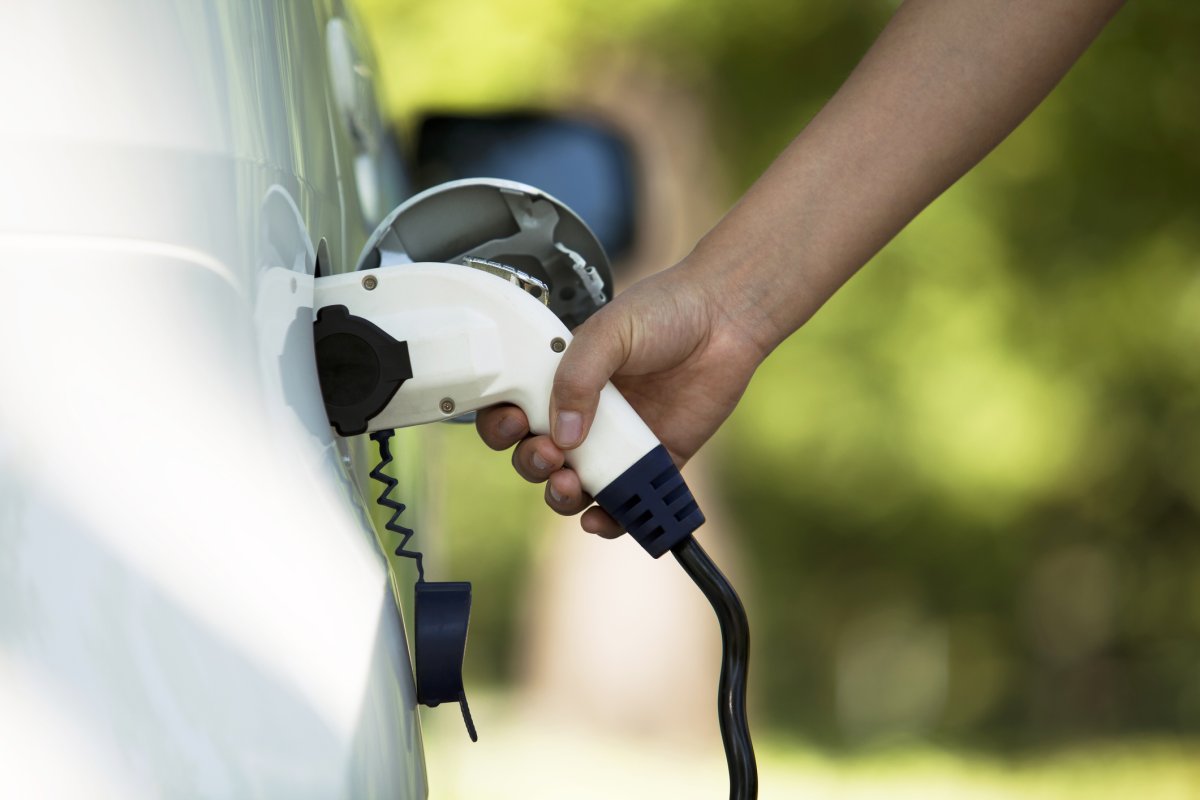A global energy transition is underway to reduce our reliance on fossil fuels. But while this shift is essential for meeting our net-zero goals, it has forced us to lean more heavily on other scarce resources.
Lithium is the key component in the majority of electric car batteries, but its price has increased by 900 percent since 2020. This trend is expected to continue. President Joe Biden's goal to make electric cars account for 50 percent of U.S. vehicle sales by 2030 will see the global demand for lithium increase by a factor of six by 2032, analysts suggest.
Lithium mining comes with environmental and humanitarian concerns too. As a result, the race is now on to develop alternative battery technologies. One such alternative uses an element that is so common it makes up 2.6 percent of the Earth's crust: sodium.

A U.K.-based startup, called Faradion, has been experimenting with this technology since 2011. "The principle of operation for a sodium-ion rechargeable battery is exactly the same as that of a lithium-ion battery, the differentiator being the cathode and electrolyte are sodium-containing instead of lithium-containing," Ruth Sayers, director of technology at Faradion, told Newsweek.
Sodium is the sixth most abundant element in the world, Sayers said, and it can be extracted from seawater. "Between the manufacturing costs and battery materials, we are between 20 and 35 percent cheaper than lithium iron phosphate cells," the batteries used in most electric vehicles today.
"The cost advantages come from less-expensive raw materials," Sayers continued. "There is an absence of expensive cobalt in the active ingredients...[and] we use the same production facilities as lithium does. Within 24 hours, an entire factory can be geared towards sodium, so there are no additional costs."
Sodium batteries are also safer to transport than lithium batteries because they are more stable at higher temperatures. "The dangers of transporting lithium-ion batteries are well documented," Sayers said. "They cannot be discharged below 30 percent charge relative to its capacity, so cargo cells must be air-freight transported at considerable cost."
There are also ethical concerns to consider. "The dominant lithium production in the world is either made from brine in Chile and other places in South America or mined from the Congo," Sayers said.
"[Today] there is a lot of informal mining as part of the supply chain. In the DRC, for example, you will likely have child labor in that supply chain," she said, referring to the Democratic Republic of Congo.

Lithium mining is energy- and resource-intensive too. "Lithium mining requires a lot of groundwater. To produce 1 ton of lithium [enough for about 90 cars], you need approximately 200 million liters of water," Sayers said. "Those [water] supplies will go under a real premium as the demand for lithium goes up."
Although most lithium mining occurs in South America and the DRC, over 70 percent of battery production happens in China. Sodium batteries would therefore enable electric vehicle supply chains to become more localized in the West. "This is the first time a battery technology has been invented and commercialized in the U.K.," Sayers said.
The main shortcoming of this technology is that sodium as an element is heavier than lithium. "Sodium cells are heavier than lithium cells at the molecular level, and therefore, for the same energy density, the sodium battery will be slightly heavier than the lithium battery. So you need better performance for sodium to compensate for that slight weight increase," Sayers said.
"If they're a stationary energy storage unit, the weight doesn't matter, but if you have a scooter or a phone, the weight matters significantly more," she said.
The technology is still very new, and prototype sodium storage systems are now more or less comparable to standard lithium-ion batteries. "Faradion's next-generation sodium-ion cell design will deliver a rated specific energy in excess of 190 [watt-hours per kilogram]," Sayers said. "The next step is scaling that up and commercializing it.
"Lithium research and development has been done for the last 30 to 35 years," she continued. "Sodium, comparatively, is only 10 to 12 years old.... It's a newer technology, and therefore it takes a few more years to get to that kind of scale."
Despite these scaling challenges, the future of sodium-ion batteries looks bright. "This could be the most exciting thing to happen in the battery industry for a long time," Sayers said.
Uncommon Knowledge
Newsweek is committed to challenging conventional wisdom and finding connections in the search for common ground.
Newsweek is committed to challenging conventional wisdom and finding connections in the search for common ground.
About the writer
Pandora Dewan is a Senior Science Reporter at Newsweek based in London, UK. Her focus is reporting on science, health ... Read more
To read how Newsweek uses AI as a newsroom tool, Click here.





